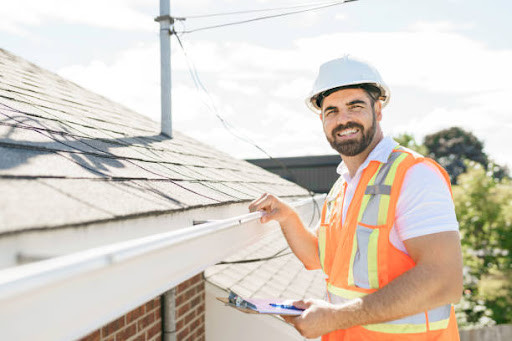Your roof is one of the most critical components of your home, providing shelter and protection from the elements. But different types of weather can have a significant impact on the health and longevity of your roof. In this article, we'll explore how different types of weather can affect your roof and what you can do to mitigate the damage.
Heavy Rain
Heavy rain can cause significant damage to your roof, particularly if it's already compromised or in poor condition. The weight of the water can put stress on your roof, leading to leaks and structural damage. If you have a flat or low-pitched roof, standing water can accumulate, which can lead to mold growth, rot, and further damage to the roof's structure.
To prevent damage from heavy rain, it's important to ensure that your roof is in good condition and free from any leaks or weak spots. Regular inspections and maintenance can help identify potential problems before they become significant issues. Additionally, you may want to consider installing a drainage system, such as gutters and downspouts, to redirect water away from your roof and foundation.
Wind
Strong winds can cause significant damage to your roof, particularly if it's not properly installed or maintained. High winds can lift shingles and tiles, causing them to loosen or break off entirely. This can expose your roof to the elements and lead to leaks and water damage.
To protect your roof from wind damage, make sure it's properly installed and maintained. Regular inspections can help identify any loose or damaged shingles or tiles, which can be repaired or replaced as needed. Additionally, you may want to consider reinforcing your roof with hurricane straps or other structural elements to improve its resistance to high winds.
Hail
Hail can cause significant damage to your roof, particularly if the hailstones are large or the storm is prolonged. Hailstones can dent or crack shingles and tiles, leading to leaks and water damage. Additionally, hail can damage the underlying structure of your roof, which can weaken its integrity and lead to more significant problems down the line.
To protect your roof from hail damage, consider installing impact-resistant shingles or tiles. These are designed to withstand the impact of hail and other debris, helping to prevent damage and extend the life of your roof. Additionally, make sure your roof is properly installed and maintained, and consider adding extra insulation to help absorb the impact of hailstones.
Snow and Ice
Snow and ice can cause significant damage to your roof, particularly if they're allowed to accumulate. The weight of snow and ice can put stress on your roof, leading to structural damage, leaks, and other problems. Additionally, melting snow and ice can create ice dams, which can prevent water from draining off your roof and lead to leaks and water damage.
To protect your roof from snow and ice damage, make sure it's properly insulated and ventilated. This can help prevent the formation of ice dams and reduce the weight of snow and ice on your roof. Additionally, consider installing a snow and ice removal system, such as heated gutters or a roof rake, to remove snow and ice from your roof before it can cause damage.
Extreme Heat
Extreme heat can cause significant damage to your roof, particularly if it's made of asphalt or other materials that are sensitive to temperature changes. High temperatures can cause shingles and tiles to buckle or warp, leading to leaks and other problems. Additionally, extreme heat can cause the underlying structure of your roof to expand and contract, which can weaken its integrity over time.
To protect your roof from extreme heat, consider installing a cool roof. Cool roofs are designed to reflect sunlight and heat, reducing the temperature of your roof and extending its lifespan. Additionally, make sure your roof is properly insulated and ventilated, which can help reduce the temperature of your roof and protect it from the elements. Finally, consider painting your roof white or another light color to further reduce the temperature and protect against UV damage.
The Best Roofs For Your Comfort
Choosing the right roof for specific weather is crucial for ensuring the longevity and durability of a building. The roof is the first line of defense against natural elements, so it is important to consider the type of weather that a building is likely to encounter when selecting a roofing material.
For areas with a warm or hot climate, it is important to choose a material that reflects heat and resists UV rays. Metal roofs are an ideal option for this type of climate, as they reflect sunlight and heat, keeping the building cool and reducing energy costs. Asphalt shingles can also be an option, but they may not last as long in hot climates due to the sun's damaging effects.
In places with heavy rainfall, the roof must be able to handle the weight of the rain and prevent water from penetrating the building. Metal roofs, particularly aluminum, and steel, are a popular choice for this type of weather as they can resist corrosion and rust. Tiles and slate roofs are also good options as they have natural water-resistant properties and can last for many years.
In areas with high winds, it is important to select a roofing material that can withstand the wind's force. Metal roofs and clay tiles are ideal for such areas, as they are durable and can be fastened securely to the roof structure. Asphalt shingle roofs can also be effective if they are installed with a high-quality underlayment and nailed down securely.
For places with extreme cold and heavy snow, the roof must be able to handle the weight of the snow buildup without collapsing. Metal roofs and asphalt shingles are both effective in this scenario if they are installed with proper insulation and ventilation to prevent heat from escaping the building. Metal roofs are particularly well-suited to this type of weather as they have a smooth, uniform surface that allows for snow to slide off easily.
In regions with a mix of weather patterns, it is important to choose a roofing material that can handle all types of weather. A standing seam metal roof or a metal shingle roof is a good option for such areas as they can withstand heavy rainfall, snow-loading, wind, and extreme temperatures. Additionally, metal roofs often come with long warranties, ensuring that the roof will last many years.
At Eason Roofing, we understand that the weather in your area can significantly impact the type of roof you need. That's why our team of experts is dedicated to helping you select the best roof for your needs and budget. With years of experience in providing quality residential and commercial roofing services, we are confident that we can help you protect your home or business!



























